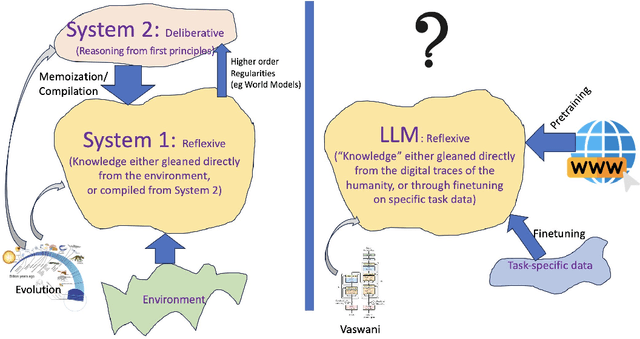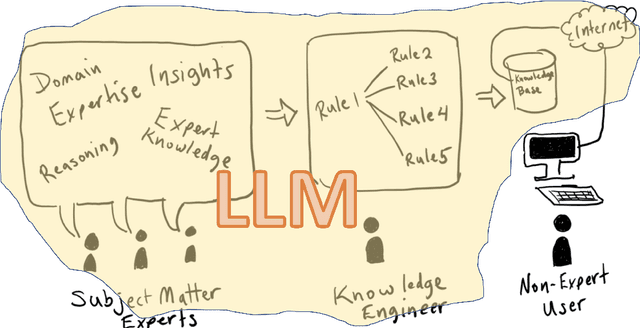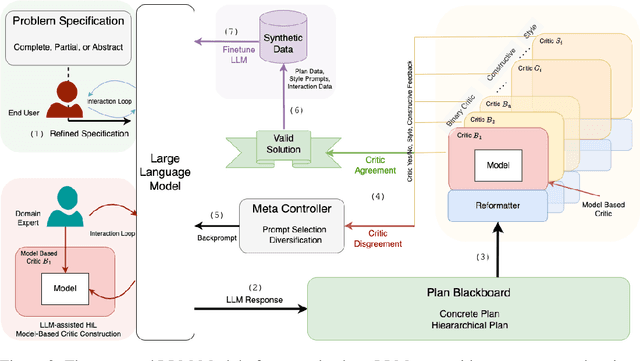Lucas Saldyt
Mind The Gap: Deep Learning Doesn't Learn Deeply
May 24, 2025Abstract:This paper aims to understand how neural networks learn algorithmic reasoning by addressing two questions: How faithful are learned algorithms when they are effective, and why do neural networks fail to learn effective algorithms otherwise? To answer these questions, we use neural compilation, a technique that directly encodes a source algorithm into neural network parameters, enabling the network to compute the algorithm exactly. This enables comparison between compiled and conventionally learned parameters, intermediate vectors, and behaviors. This investigation is crucial for developing neural networks that robustly learn complexalgorithms from data. Our analysis focuses on graph neural networks (GNNs), which are naturally aligned with algorithmic reasoning tasks, specifically our choices of BFS, DFS, and Bellman-Ford, which cover the spectrum of effective, faithful, and ineffective learned algorithms. Commonly, learning algorithmic reasoning is framed as induction over synthetic data, where a parameterized model is trained on inputs, traces, and outputs produced by an underlying ground truth algorithm. In contrast, we introduce a neural compilation method for GNNs, which sets network parameters analytically, bypassing training. Focusing on GNNs leverages their alignment with algorithmic reasoning, extensive algorithmic induction literature, and the novel application of neural compilation to GNNs. Overall, this paper aims to characterize expressability-trainability gaps - a fundamental shortcoming in learning algorithmic reasoning. We hypothesize that inductive learning is most effective for parallel algorithms contained within the computational class \texttt{NC}.
Algorithmic Language Models with Neurally Compiled Libraries
Jul 06, 2024Abstract:Important tasks such as reasoning and planning are fundamentally algorithmic, meaning that solving them robustly requires acquiring true reasoning or planning algorithms, rather than shortcuts. Large Language Models lack true algorithmic ability primarily because of the limitations of neural network optimization algorithms, their optimization data and optimization objective, but also due to architectural inexpressivity. To solve this, our paper proposes augmenting LLMs with a library of fundamental operations and sophisticated differentiable programs, so that common algorithms do not need to be learned from scratch. We add memory, registers, basic operations, and adaptive recurrence to a transformer architecture built on LLaMA3. Then, we define a method for directly compiling algorithms into a differentiable starting library, which is used natively and propagates gradients for optimization. In this preliminary study, we explore the feasability of augmenting LLaMA3 with a differentiable computer, for instance by fine-tuning small transformers on simple algorithmic tasks with variable computational depth.
LLMs Can't Plan, But Can Help Planning in LLM-Modulo Frameworks
Feb 06, 2024


Abstract:There is considerable confusion about the role of Large Language Models (LLMs) in planning and reasoning tasks. On one side are over-optimistic claims that LLMs can indeed do these tasks with just the right prompting or self-verification strategies. On the other side are perhaps over-pessimistic claims that all that LLMs are good for in planning/reasoning tasks are as mere translators of the problem specification from one syntactic format to another, and ship the problem off to external symbolic solvers. In this position paper, we take the view that both these extremes are misguided. We argue that auto-regressive LLMs cannot, by themselves, do planning or self-verification (which is after all a form of reasoning), and shed some light on the reasons for misunderstandings in the literature. We will also argue that LLMs should be viewed as universal approximate knowledge sources that have much more meaningful roles to play in planning/reasoning tasks beyond simple front-end/back-end format translators. We present a vision of {\bf LLM-Modulo Frameworks} that combine the strengths of LLMs with external model-based verifiers in a tighter bi-directional interaction regime. We will show how the models driving the external verifiers themselves can be acquired with the help of LLMs. We will also argue that rather than simply pipelining LLMs and symbolic components, this LLM-Modulo Framework provides a better neuro-symbolic approach that offers tighter integration between LLMs and symbolic components, and allows extending the scope of model-based planning/reasoning regimes towards more flexible knowledge, problem and preference specifications.
 Add to Chrome
Add to Chrome Add to Firefox
Add to Firefox Add to Edge
Add to Edge